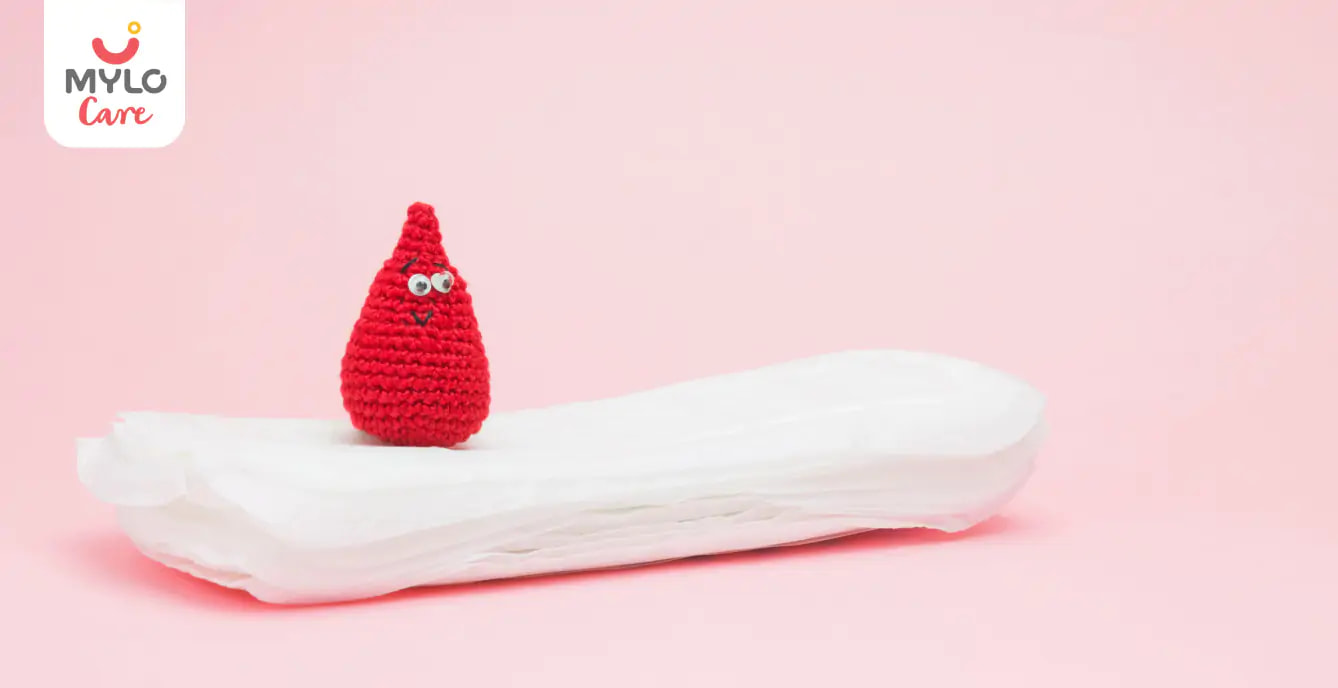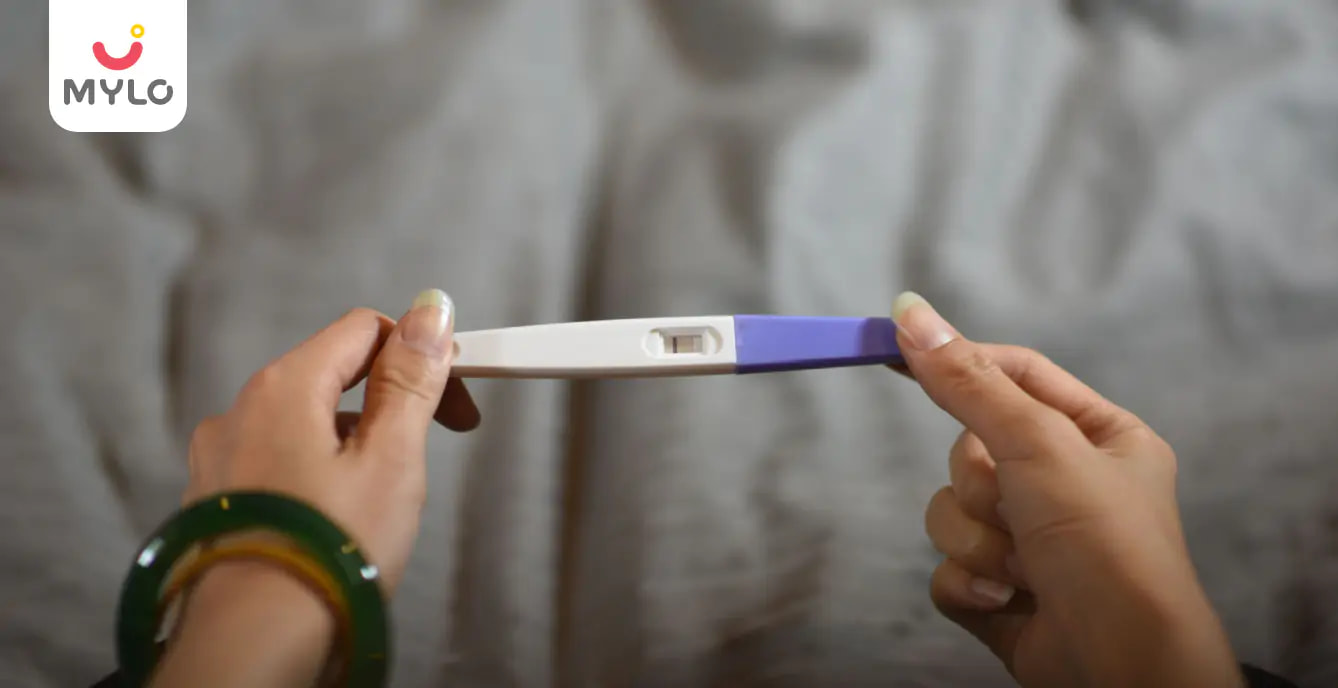Home

How to Differentiate Between Implantation Bleeding and Your Periods?
In this Article

Pregnancy
How to Differentiate Between Implantation Bleeding and Your Periods?
Updated on 3 November 2023



Medically Reviewed by
Kusum Sabharwal
Obstetrician & Gynecologist - MBBS| DGO
View Profile

When you’re desperate to get pregnant, those two weeks between ovulation and a positive home pregnancy test (or your period) seem never-ending. Like most other women, you’ll spend them hyper-aware of every ache, twinge, and craving your body has, wondering whether it’s an early sign of pregnancy.
One of the most telltale symptoms of pregnancy is bleeding. If you do have some light spotting, does it mean anything? While it can be hard to tell, many women who go on to have healthy, normal pregnancies have what’s called implantation bleeding around the time that their embryo lodges itself into the side of the uterus.
What is implantation bleeding?
After ovulation and at the moment an egg is successfully fertilized by sperm, the embryo starts dividing and growing, sending out signals to a woman’s body to prepare for pregnancy. In turn, the walls of the uterus, called the endometrium, start to change: They’ve already been thickening throughout the menstrual cycle, but they’ll need to grow and mature even more to protect and nourish an embryo for nine months.
Anywhere from six to 12 days after fertilization, the quickly-growing embryo has moved down the Fallopian tubes to the uterus. It’s starting to need more nutrients, and the endometrium has filled in enough to support the embryo. At this stage, the embryo itself attaches to the endometrium, where it becomes dependent on a mother’s body — for the first time — for nutrients and oxygen. However, Implantation bleeding happens when the embryo makes its way into the uterus, which sometimes causes little blood vessels to burst.
When does implantation bleeding occur?
When the embryo implants into the lining of the uterus, tiny blood vessels are then disrupted in the spot it burrows into. However, this won’t cause any problems (the endometrium recovers!) but some women will experience light bleeding, from pinkish or red to brown discharge.
How long does implantation bleeding last?
This so-called implantation bleeding will likely arrive earlier than your expected monthly flow (usually around five to 10 days after conception).
How to recognize implantation bleeding
Since implantation bleeding is a symptom that can often occur before you test positive on a pregnancy test, it can be hard to know whether light bleeding is an early sign of pregnancy or just normal spotting leading up to your period. And unfortunately, there’s no conclusive way to find out.
Light bleeding after a missed period - Am I pregnant?
The best way to know whether you’re pregnant or not is to wait a few more days and take a pregnancy test. The timing of when you last had sex might also help you figure it out: If it’s been more than two weeks, it’s unlikely that any spot you're having is implantation bleeding.
What does implantation bleeding look like?
That said, approximately one-third of women who report having experienced implantation bleeding often describe it as distinct from their usual premenstrual spotting — some say the blood is darker and not as red compared with normal period blood. Others have mild cramping at the same time as the spotting. But for many women, the two types of bleeding aren’t different at all. That’s the reason it’s very tough to tell the difference between implantation bleeding vs missed period. So, you’re not alone if you assume that some spotting is implantation bleeding and get your period a few days later, or if you assume that implantation bleeding is normal spotting and end up being pregnant!
When should I see my doctor?
Light bleeding during pregnancy even at times other than implantation is often normal. Causes can include mundane things like irritation of the cervix following a pelvic exam, sex or infection of the vagina. But because sometimes bleeding following a positive pregnancy test can be a sign of ectopic pregnancy, molar pregnancy or miscarriage, you should always call your medical provider if you experience it so you can talk through any other symptoms. Don’t worry too much; chances are good that if the bleeding is light and doesn't last long, everything is fine.
References
- Hasan R, Baird DD, Herring AH, Olshan AF, Jonsson Funk ML, Hartmann KE. (2010). Patterns and predictors of vaginal bleeding in the first trimester of pregnancy. NCBI
- Vardhan S, Bhattacharyya TK, Kochar S, Sodhi B. (2007). Bleeding in Early Pregnancy. NCBI





Medically Reviewed by
Kusum Sabharwal
Obstetrician & Gynecologist - MBBS| DGO
View Profile


Written by
Mittali Khurana
Mittali is a content writer by profession. She is a dynamic writer with 04+ years of experience in content writing for E-commerce, Parenting App & Websites, SEO.
Read MoreGet baby's diet chart, and growth tips

Related Articles
RECENTLY PUBLISHED ARTICLES
our most recent articles

Diet & Nutrition
গর্ভাবস্থায় আলুবোখরা: উপকারিতা ও ঝুঁকি | Prunes During Pregnancy: Benefits & Risks in Bengali

Diet & Nutrition
গর্ভাবস্থায় হিং | ঝুঁকি, সুবিধা এবং অন্যান্য চিকিৎসা | Hing During Pregnancy | Risks, Benefits & Other Treatments in Bengali

Women Specific Issues
স্তনের উপর সাদা দাগ: লক্ষণ, কারণ এবং চিকিৎসা | White Spots on Nipple: Causes, Symptoms, and Treatments in Bengali

Diet & Nutrition
গর্ভাবস্থায় পোহা: উপকারিতা, ধরণ এবং রেসিপি | Poha During Pregnancy: Benefits, Types & Recipes in Bengali

Diet & Nutrition
গর্ভাবস্থায় মাছ: উপকারিতা এবং ঝুঁকি | Fish In Pregnancy: Benefits and Risks in Bengali

Diet & Nutrition
গর্ভাবস্থায় রেড ওয়াইন: পার্শ্ব প্রতিক্রিয়া এবং নির্দেশিকা | Red Wine During Pregnancy: Side Effects & Guidelines in Bengali
- ইনার থাই চ্যাফিং: কারণ, উপসর্গ এবং চিকিৎসা | Inner Thigh Chafing: Causes, Symptoms & Treatment in Bengali
- গর্ভাবস্থায় ব্রাউন রাইস: উপকারিতা ও সতর্কতা | Brown Rice During Pregnancy: Benefits & Precautions in Bengali
- Velamentous Cord Insertion - Precautions, Results & Safety
- Unlock the Secret to Flawless Skin: 7 Must-Have Qualities in a Face Serum
- Unlock the Secret to Radiant Skin: How Vitamin C Serum Can Transform Your Complexion
- Gender No Bar: 10 Reasons Why Everyone Needs a Body Lotion
- Unlock the Secret to Radiant Skin How to Choose the Perfect Body Lotion for Your Skin Type
- Top 10 Reasons to Apply a Body Lotion After Every Bath
- Communication in Toddlers: Milestones & Activities
- How to Improve Vocabulary for Toddlers?
- A Comprehensive Guide to Understanding Placenta Accreta
- Vulvovaginitis in Toddlers Causes, Symptoms and Treatment
- A Comprehensive Guide to Understanding Cerebral Palsy in Children
- Bitter Taste in Mouth During Pregnancy: Understanding the Causes and Remedies


AWARDS AND RECOGNITION

Mylo wins Forbes D2C Disruptor award

Mylo wins The Economic Times Promising Brands 2022
AS SEEN IN
















- Mylo Care: Effective and science-backed personal care and wellness solutions for a joyful you.
- Mylo Baby: Science-backed, gentle and effective personal care & hygiene range for your little one.
- Mylo Community: Trusted and empathetic community of 10mn+ parents and experts.
Product Categories
baby carrier | baby soap | baby wipes | stretch marks cream | baby cream | baby shampoo | baby massage oil | baby hair oil | stretch marks oil | baby body wash | baby powder | baby lotion | diaper rash cream | newborn diapers | teether | baby kajal | baby diapers | cloth diapers |








